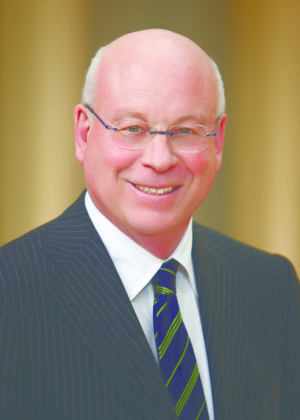by
Loren Bonner, DOTmed News Online Editor | October 22, 2012
From the October 2012 issue of HealthCare Business News magazine
What attracted you to a career in radiation oncology? A couple of things: The spectrum of patients — you see men, women, kids, people of all ages with interesting and significant medical problems that challenge me as a physician. I learned early on that these are the best patients, the most heroic patients. Then there’s the use of the technology and the fascination with the biology of cancer. But by and large, for me, it’s about the patients, who they are and the challenge of caring for them and possibly saving their life.
In addition to serving as current president of ASTRO, you’re also a professor and chairman of radiation oncology at the David GeffenSchool of Medicine at UCLA and director of clinical affairs for UCLA’s Jonsson Comprehensive Cancer Center. How does your work there play a direct role in what you bring to ASTRO? Certainly the notion of integration of multidisciplinary practice is one of the things that I do in my roles as chair and director of clinical affairs for the cancer center here at UCLA. And UCLA being a cutting edge academic institution, we are challenged with many similar policy issues that affect ASTRO members and ultimately my patients at UCLA, so I think they dovetail quite nicely.
Can you share some of the goals you have accomplished as president of ASTRO? When I ran, I had a set of goals and one of the goals was to put in a process that we call best practices—a way of evaluating how we take care of patients, kind of beyond what guidelines do, but what are the best ways to do things. We were able to establish a best practice process and are now developing the first best practice for GYN cancers and the second group will be GI cancers. Another issue that I brought up a few years ago when I ran for the office had to do with radiation oncology research funding at NIH being bundled inappropriately with radiology for historical reasons. If we are going to ask for more research funding from NIH, which we want to do, we need to know the baseline funding for radiation oncology research at NIH, which is not yet knowable. I am pleased that we are getting that information and will bring it to the board and membership. In the broader sense, it prompted us to establish a basic science task force to look at that benchmarking issue with funding, but also to look at issues around education for both residents and practicing physicians for new and developing cancer biology, as well as to set a translational research agenda that will serve the specialty long into the future. Those are two things I think we’ve accomplished so far and there is more coming.
